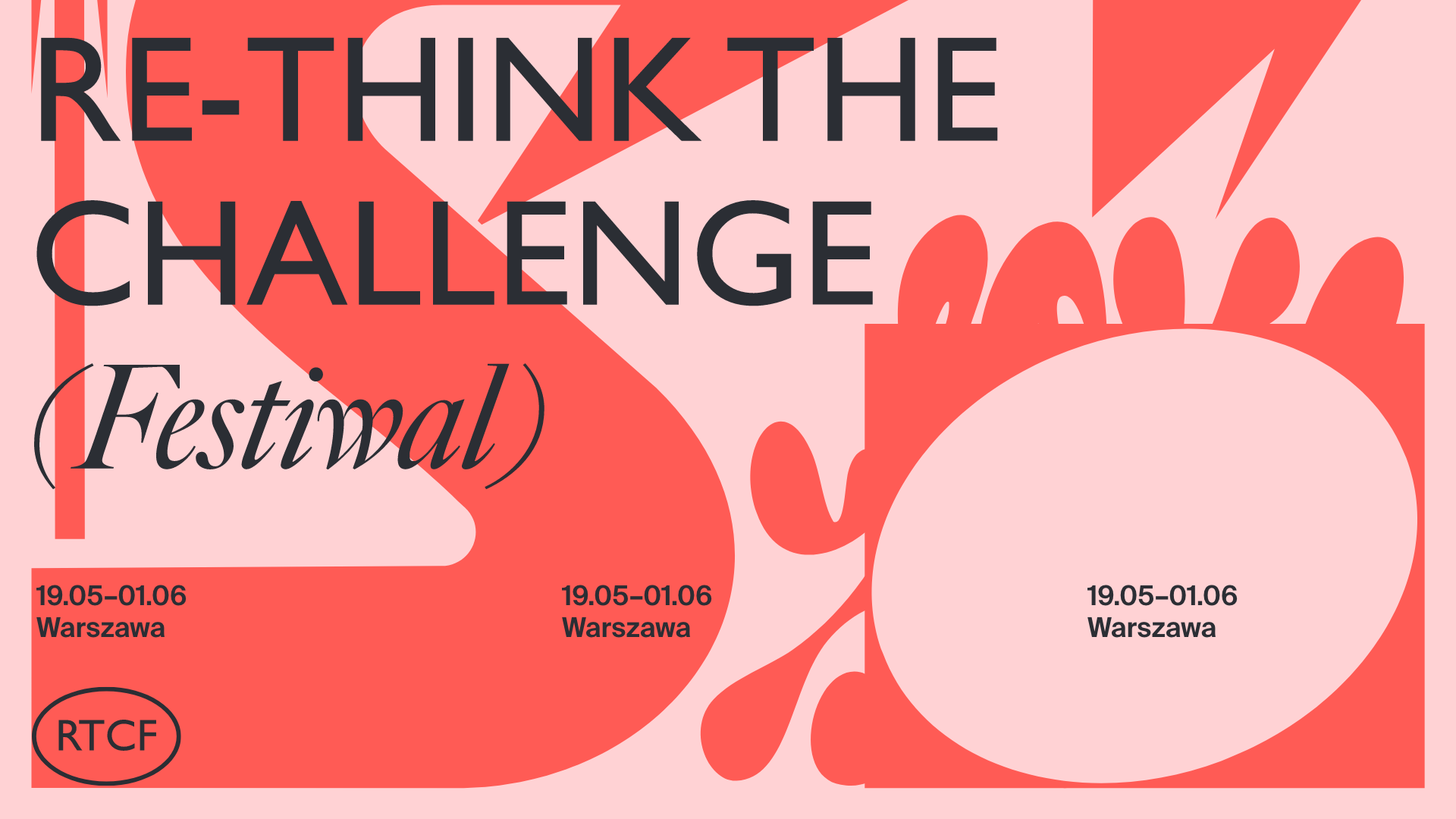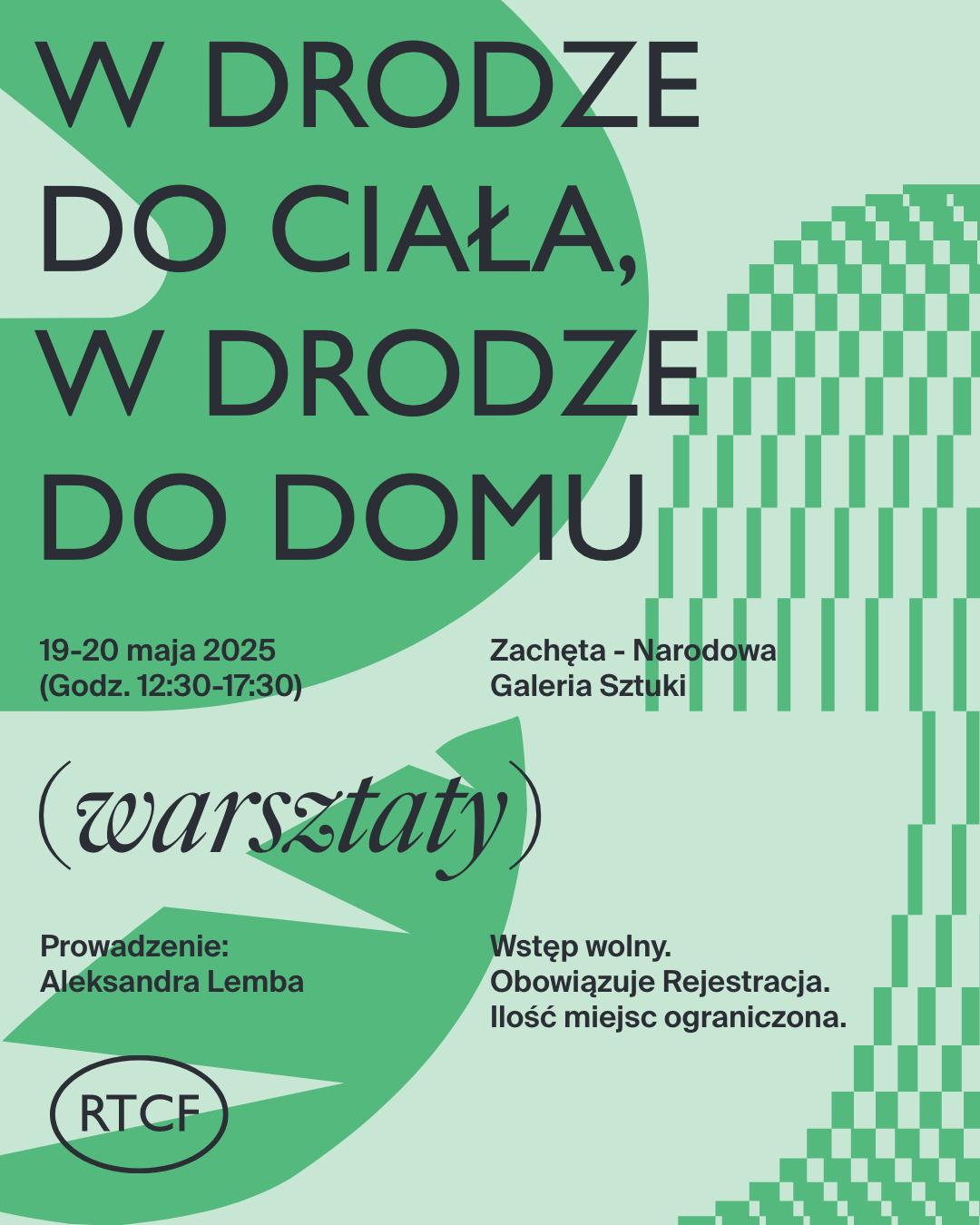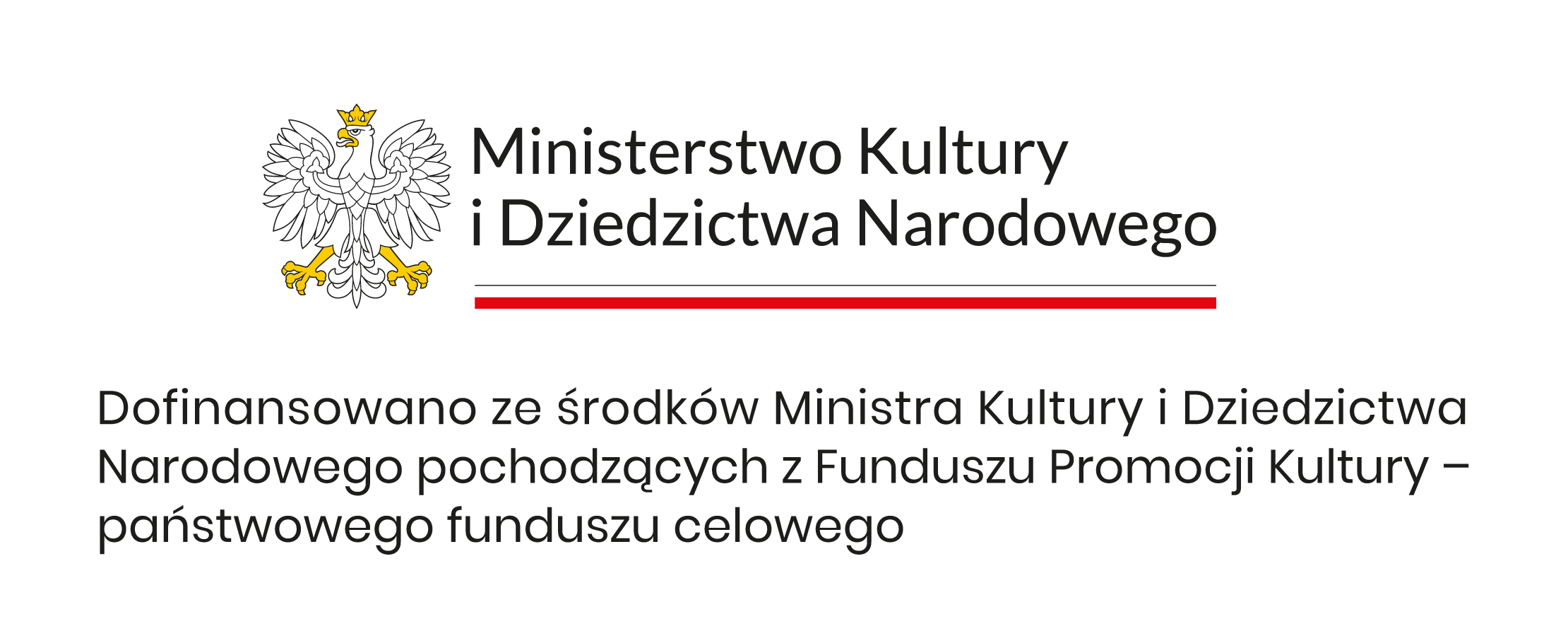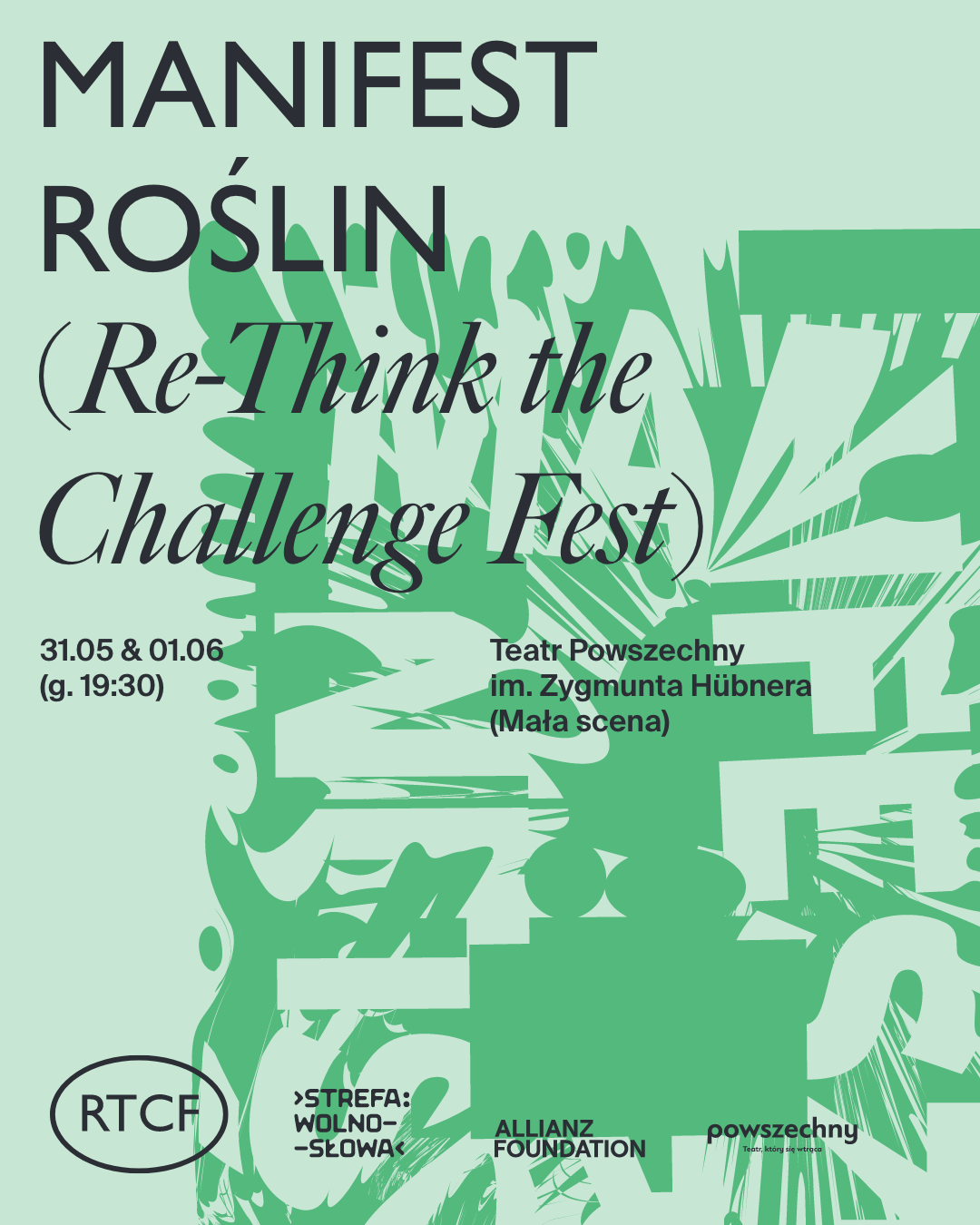About the festival
From May 19 to June 1, we invite you to performative events, film screenings, artistic installations, debates, and workshops that will take place in various locations in Warsaw. The festival partners are: Zachęta - National Gallery of Art, Museum of Modern Art, Warsaw Culture Observatory, Komuna Warszawa Theatre, and Zygmunt Hubner Powszechny Theatre.
The public opening of the festival will take place on 20 May at 6 p.m. at the Warsaw Cultural Observatory
What are we talking about when we talk about so-called climate migrations? How do we shape narratives regarding the mobility of people and other living creatures? Justice of movement begins with the question: do we have the ability to decide about our movements? Why do we give some creatures the right to survive, caring for the possibility of movement of endangered species, while we deny others this freedom by fortifying borders?
The climate crisis is not limited to recent years; it is a specific model of development based on values such as progress, evolution, or advancement. The planet allows us to question the current system by developing mindfulness, imagination, cooperation, and interspecies solidarity.
As part of the festival, meetings, workshops, seminars, and performances, we will examine how movement is an inseparable element of our existence and how limiting it deprives people, plants, and animals of dignity and prevents survival.
Curatorial collective: Alicja Borkowska, Weronika Chinowska, Maciek Diduszko, Magdalena Duszyńska-Sasin, Olga Klip, Stanley Ndua, Łukasz Wójcicki.

On the way to the body, on the way home
Workshop with Aleksandra Lemba
19-20 May, 12:30-17:30
Zachęta - National Gallery of Art (Plac Małachowskiego 3)
The workshop is based on the assumption that conscious dance and movement can be effective tools supporting the process of internal integration of the body and mind. Its main goal is to build a relationship with the body as a safe base—a place of settlement, contact, and self-regulation.
Participants will be invited to search for new (and sometimes old, forgotten) paths leading to self-regulation and building well-being. The process is based on strengthening the ability for self-reflection and mindfulness towards one's own internal states, as well as opening up to non-verbal messages coming from the body.
The practice of movement will be the starting point for developing a dialogue with oneself—both in the context of the internal world and relations with the environment. The workshop supports building mental resistance by developing contact with the body as a resource.
The methodological basis is practical and developmental tools inspired by Dance Movement Psychotherapy (DMP/DMT) and the Laban/Bartenieff Movement System.
Aleksandra Lemba - dancer, psychologist, DMP psychotherapist, workshop trainer, intimate scenes coordinator
The limit of places has been reached, thank you for your applications.
WHALE - installation
May 20 - opening at 6:00 PM
May 21-29, 4:00 PM - 8:00 PM
May, 24-25, 2:00 PM - 6:00 PM
WOK LAB (Warsaw Cultural Observatory, ul. Marszałkowska 34/50)
From May 20 to 29, we invite you to the Warsaw Culture Observatory for the sound and visual installation WHALE prepared by Sara Pour and Pietro Floridia in cooperation with Strefa WolnoSłowa.
The installation is a reflection on climate change and refers to the story of a whale washed ashore in a certain bay—a story that also becomes the axis of the performance of the same title shown as part of the festival on May 25 at Komuna Warszawa.
The whale washed ashore becomes a symbol of the Earth itself, exploited to the point of collapse. The installation encourages visitors to reflect on the price that humanity will have to pay for the destruction of the planet. The floor and walls of the installation merge into a symbolic map that unites the body of the whale and the Earth. Fossils and traces tell intertwined stories of fragility and resistance, inviting visitors to discover collective memory.
Creators of the installation
Sara Pour - Iranian visual artist based in Bologna, illustrator, scenographer, and workshop leader throughout Europe and many countries around the world. Her art is characterized by a strong emphasis on the intertwining of memory, symbolism, and social critique.
Pietro Floridia - playwright and director, founder of Cantieri Meticci. His work combines poetry, epic narrative, and social engagement, giving voice to stories that speak of our times.
The event will be translated into Polish Sign Language.
Film screening + discussion
May 22, 8:00 PM
U-jazdowski Cinema (Jazdów Street 2)
Diário de um Crime
dir. Pavel Tavares
A performative documentary film by Pavel Tavares. On International Human Rights Day, I lost my right to reside in Europe. On the same day, Diário de um Crime was born, an experimental documentary about the personal experience of being illegal in one's own body. What is a document (document of reality) for someone without documents? If they don't give me freedom, I will allow myself to talk about the experience of being undocumented, hiding in the bodies of friends, and the European aesthetics that influenced my steps. "Diário de um Crime" is a cathartic experience that shouts out the absurdity of bureaucracy and its abyss, embracing with irony both personal and cinematic identity.
Production: Pavel Tavares.
Poetry: Pavel Tavares and Flore de Corbier.
Music: Manuel Rosales.
2023 / Brazil, Portugal / 48’
Second Film Screening
I walked from Ghana to Germany and it took me 10 years.
Dir. Ben Zola & Sascha Lasarzewski
This is a short documentary about Shadrack, describing his journey from Ghana to Berlin, which took him a total of 10 years. It is a story about a journey, a journey full of challenges, arrests and numerous difficulties he encountered along the way. The short documentary also explores the motivations and inspirations that drive many, especially young people, to make the dangerous journey to Europe.
This story highlights the movement of people caused by factors such as climate change, job insecurity and economic instability. Apart from being a personal story, it serves as a source of motivation and insight into the challenges faced by migrants.
Pavel Taveres and Ben Zola will take part in the post-screening discussion. Moderation: Stanley Ndua
WHALE - performance
May 25, 7:00 PM
Teatr Komuna Warszawa (ul. Emili Plater 31)
Admission to the performance is free. Registration is required: FORM
A whale has landed on the beach. It only manages to stay alive because it is irrigated by the tide for several hours a day. However, it is not high enough to allow the whale to return to the sea.
Children visit it every day. They take care of it in secret until it is discovered by adults who forbid the children from approaching the whale, sensing the creature's presence as a chance to make money.
Tourists begin to arrive in their thousands. Their presence is too much for the animal, which begins to suffocate because of the crowds surrounding and exploiting it. Its heavy, loud, and wheezing breathing becomes an all-encompassing sound, unbearable for the villagers. The whale is in agony. What to do?
The performance is a joint production by multicultural groups of artists associated with Strefa WolnoSłowa and Cantieri Meticci, the result of participatory workshops with children, young people and artists from various backgrounds, who explored the topic of environmental crisis and migration.
Idea and direction: Pietro Floridia
Set design: Sara Pour
Dramaturgy: Emil Al-Kawaldeh, Alicja Borkowska, Weronika Chinowska, Pietro Floridia, Bogumiła Karbowiak, Vera Popova,, Katarzyna Stefanowicz, Luxuan Wang, Łukasz Wójcicki.
Starring: Emil Al-Kawaldeh, Alicja Białas, Nikola Białas, Mela Buchelt, Kalina Chinowska-Petter, Aniela Duszyńska-Wąs, Marta Duszyńska-Wąs, Arek Gliński, Weronika Jaskuła, Bogumiła Karbowiak, Lydia Kaszuba, Lukeriia Malanicheva, Emilia Marecka, Ellina Maroz, Nina Nadwodna, Stefania Pauluchenka, Vera Popova, Nina Ptak, Tamara Rybakowa, Edek Sierociński, Jurek Sierociński, Katarzyna Stefanowicz, Ester Stencel, Luxuan Wang, Łukasz Wójcicki, Blanka Zalewska, Lukas Ziajka
Production: Maciek Diduszko
The event will be held in Polish with translation into PJM.
BEYOND PANIC - Reimagining Mobilities seminar (University of Bologna)
25-27 May (Sunday-Tuesday), 2:00-6:00 PM
Zachęta - National Gallery of Art (Plac Małachowskiego 3)
Event for a group selected through an open call
%20(4).png)
Reimagining Mobilities is a research collective affiliated with the University of Bologna. Reimagining Mobilities explores the tensions and contradictions between climate justice policies, practices and narratives and different systems of mobility. Through creative research practices and actions that start from the recognition of one’s own privileged position, the collective aims to share strategies and tools to combat injustice and social exclusion. As part of the festival, members of the group will run a workshop for artists, journalists, activists and researchers on the role of art in shaping narratives about migration in the face of climate catastrophe. The workshop will be a kind of seminar ending with a meeting/open show work in progress.
Who are migrants today? And how is migration related to climate change? Can we really say that migration, like the climate crisis, has a greater impact on “others” than on “us”? What narratives are circulating around the topic of climate change and migration and how to describe the complexity of our times in a way that avoids simplifications? The seminar will address the issue of mobility from the perspective of the concept of justice, as well as the topic of the “right to breathe”, living in a healthy and clean environment, from the perspective of climate justice.
Hosted by - Reimagining Mobilities:
Pierluigi Musarò - Full Professor of Sociology, Culture and Communication at the Department of Sociology and Economic Law at the University of Bologna. He is an Honorary Professor at the University of Melbourne and a Research Fellow at the London School of Economics and Political Science, the Institute for Public Knowledge-New York University (USA) and Monash University (Australia). Coordinator of the PhD Program in Sociology and Social Research. She is the author of books and articles on media and migration, borders and human rights, performing arts and active citizenship, president of the Italian NGO YODA, founding director of the IT.A.CÀ_migrants and travellers festival, founding member of the Italian Network Against Hate Speech, founding member of the Reimagining Mobilities collective.
Elena Giacomelli is a visiting fellow at the Center for Integrated Earth System Information (CIESIN) at Columbia Climate School and a Marie-Curie researcher at the University of Bologna, and the head of the global project “PANICOCENE. Reframing Climate Change-induced Mobilities”, which aims to investigate and analyse how media discourses and narratives can lead to stereotypes about climate-induced migration. Her research focuses on the themes of mobility and migration, borders, climate change, ethnography.
Stefania Peca - researcher at the University of Bologna, member of the Reimagining Mobilities collective, consultant for third sector entities and public administrations in the field of migration and social integration. Since November 2023, she has been an assistant in the Effetto Farfalla project. I am talking to people in the world about discrimination and in the Turismo delle Radici project. She collaborates on the project on climate migration Re-think the challenge, a series of seminars that will use creative tools, such as creative writing, to create cooperation between different target groups: activists/activists, researchers and scientists, journalists. Feminist.
Apply: kontakt@strefawolnoslowa.pl
The workshops will be held in English.
Participation in the workshops is free of charge, with a limited number of places.
The workshop will be translated into Polish Sign Language
The workshop "Beyond Panic. Climate Migration and Other Contemporary (In)Justices" is held as part of a project co-financed by the Ministry of Culture and National Heritage.

CLIMATE REVOLUTIONS – A Debate in the TRANSFORMATIONS Series
The Unnatural History of Environmental Crises
May 28, 2025 (Wednesday), 6:00 PM – 8:00 PM
Museum of Modern Art in Warsaw (Marszałkowska 103)
Global warming is a planetary catastrophe—the sixth mass extinction of species, the end of the world as we know it… and at the same time, a topic that has been skillfully swept under the carpet. Given the overwhelming body of scientific reports and decades of consensus on anthropogenic climate change and its consequences, engaging in further debate with climate crisis deniers seems pointless. We no longer need more arguments—we need the argument of power.
During the debate titled "Climate Revolutions", we will explore how to build that power. What do today’s climate movements need, if all the facts have already been presented… and ignored? How can we broaden their social base? Where can we find new coalition partners?
In search of answers, we will draw inspiration from both distant and recent environmental crises. Events such as the 17th-century Little Ice Age, global famines during colonization, the Dust Bowl in the early 20th-century U.S., and the recent COVID-19 pandemic brought suffering and exposed the contradictions and limitations of social and economic systems—but also opened windows for positive change. What lessons can these events offer us today? And how can we use this historical perspective in ongoing debates on the Anthropocene and Capitalocene? Can there be such a thing as green capitalism? What is the relationship between radical climate policy, anti-imperialism, and contemporary class struggles around the world?
Panelists:
- Weronika Parfinowicz – Cultural Studies Scholar, Institute of Polish Culture, University of Warsaw (IKP, UW)
- Dr. hab. Kacper Pobłocki – Anthropologist, EUROREG (University of Warsaw)
- Przemysław Wielgosz – Editor-in-Chief, Le Monde diplomatique (Polish edition)
Moderator:
Agnieszka Lichnerowicz – Journalist, Tok FM
CROSSWORLDS – The Game of Worlds
May 29, 6:00 PM – 9:00 PM
WOK LAB (Warsaw Cultural Observatory, Marszałkowska 34/50)
An open evening for the public, during which artists from Cantieri Meticci will invite participants into a unique performance-workshop made up of exercises and games that transform stage action into a tool for reflection and activism. At the center of these experiments will be imagined rituals, symbolic challenges, and collective trials that merge theatre, ecology, and social imagery. The artists will showcase elements of their theatrical method, weaving together performance, video art, and active participation.
Through the body, voice, and imagery, we will explore the boundaries between individual gesture and collective action, memory and desire. In an era of environmental and social crisis, we aim to create a game that becomes a tool for resistance, transformation, and alliance between humans and non-humans—a bodily reflection on the clash (and meeting) of nature and culture, where art does not explain but engages; does not represent but sets things in motion.
Free admission. Registration required: [REGISTRATION FORM]
The event will be held in English and interpreted into Polish Sign Language (PJM).


PLANT MANIFESTO – A Performance
May 31 at 7:30 PM
June 1 at 6:00 PM
Powszechny Theatre in Warsaw, Small Stage (ul. Zamoyskiego 20)

Plants do not recognize hierarchical authority. They form communities based on the relationships between the organisms that make them up. They understand that every being is essential for the survival of the plant-animal community—because we are one. Plants limit their growth when resources become scarce; they care for future generations. And what about us?
Article 7 of the Plant Manifesto reads: "The Nation of Plants does not recognize borders. Every living being has the right to move and to choose where to live."
Article 14 of the Universal Declaration of Human Rights states: "Everyone has the right to seek and to enjoy asylum in other countries in the case of persecution." But this is not enough. It’s not enough to have the right to migrate only when fleeing persecution. Migration is both a necessity and a choice. We should always have the right to migrate. Animals migrate, plants migrate. Migration is a natural survival strategy—and restricting it is a denial of dignity. Movement is also much more than that. It is the very essence of life.
Creators: Emil Al-Khawaldeh, Alicja Borkowska, Weronika Chinowska, Adrien Cognac, Magdalena Duszyńska-Sasin, Tatiana Dzivakova, Wojtek Kaniewski, Natalia Lis, Pavlo Luhovyi, Svitlana Makedon, Łukasz Nadwodny, Stanley Ndua, Piotr Pieczyński, Mikołaj Poncyljusz, Michał Rezazadeh, Syfon Studio, Emilia Szuchniewicz, Marek Śmietana, Magdalena Walusiak, Łukasz Wójcicki, Luxuan Wang.
The performance includes English subtitles and Polish Sign Language (PJM) interpretation.
We would like to invite you to the closing ceremony of the festival on 31 May at 9.00 p.m. on the PLAC ZABAW (on the Vistula river)
Colophon
The festival takes place as part of the Re-think the Challenge project, funded by the Allianz Foundation.
.png)